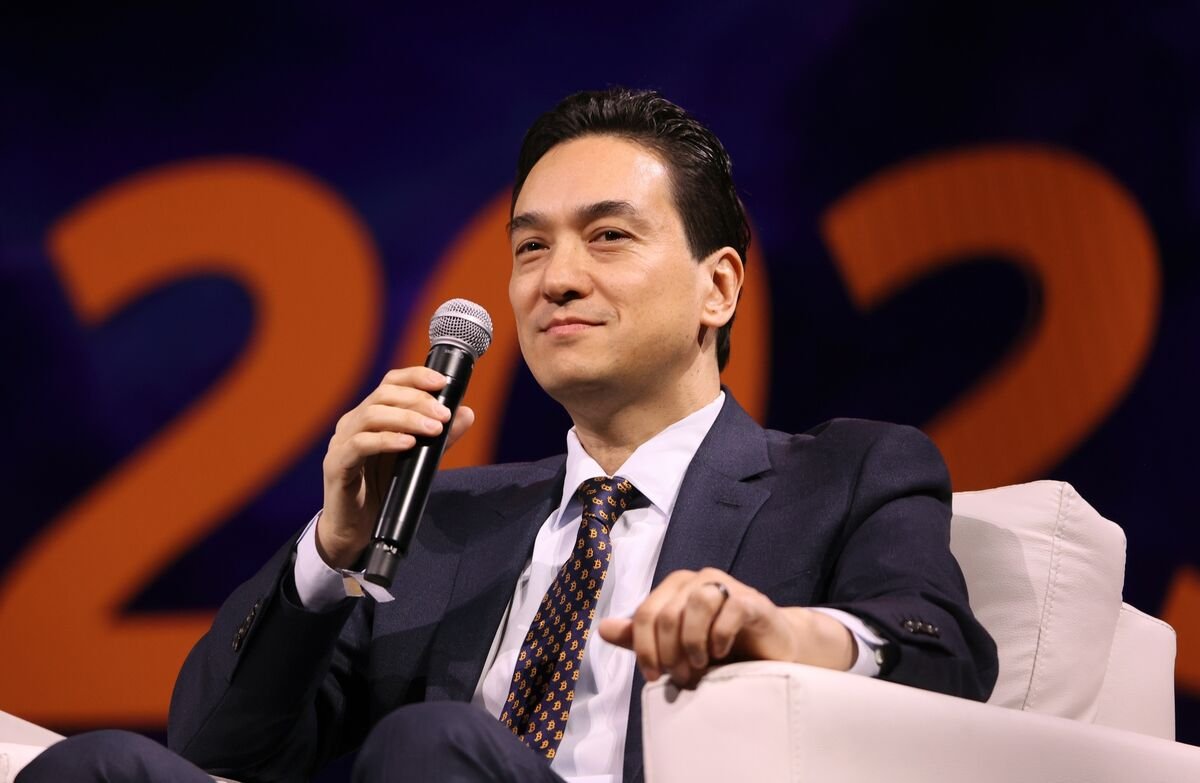AI Insights
Elementary education, artificial intelligence among new RSU degree programs

Rogers State University’s fall semester began Monday with several new degrees for students to attain.
RSU now offers bachelor’s degrees in elementary education and artificial intelligence, as well as more options for pursuing emergency teacher certifications. It also added a master’s degree option to its cybersecurity and nursing programs.
Susan Willis, the university’s vice president for academic affairs, said students who want to teach elementary school have been able to train for this career at RSU for years through its 2+2 partnership with Cameron University. Students earn an associate’s degree in education from RSU and then their bachelor’s from Cameron, all the while staying in Claremore.
But Willis said the 2+2 model likely prevented students from pursuing an education degree, especially students who rely on scholarships to study.
“The problem was they had to do the associate’s first, and a lot of scholarships require that they’re enrolled in bachelor’s programs,” Willis said. “None of our athletes could have been an education major because we only had an associate’s. … Honors Program, President’s Leadership Class, some of those scholarships require they’re a bachelor student.”
Willis said Eileen Richardson and Janet Valencia, the RSU professors who’ve been teaching the associate’s courses, largely developed the curriculum for RSU’s bachelor’s program. She said RSU also plans to add a secondary education degree next year.
She said the curriculum won’t materially differ from the education curriculum at bigger schools like the University of Oklahoma and Oklahoma State University, as RSU has to follow the same accreditation and licensure requirements. But getting the same degree at RSU would likely cost less, Willis said.
Willis said that when Mark Rasor, RSU’s chief financial officer, was the university’s interim president, he came to her with the idea of equipping RSU to train future educators on its own. She said getting the program approved took a while because it’s been a long time since an Oklahoma college founded an education program.
“I think it’s very big,” Willis said. “I think there’s a lot of students who would have come to us before, and we couldn’t accommodate them. I think there’s interest, and I think it’s going to help our local schools. … It can really change the trajectory here.”
The artificial intelligence degree, offered as an option to the existing bachelor’s in information technology degree, is more novel. RSU is the third school in Oklahoma and the first regional school in the state to develop an AI program, said professor Sai Samineni. She will lead the degree program with professors Abhilash Minukuri and Nitindra Chowdary.
Minukuri developed most of the curriculum with Curtis Sparling, head of the Department of Technology and Justice Studies, after the Oklahoma State Regents for Higher Education requested RSU look into an AI program.
Minukuri said the bulk of the AI program is tailored toward students already fluent in programming. They will learn how large language models like ChatGPT function and explore more specialized and powerful systems. Students will also get to build their own artificial intelligences through long-term projects.
“It’s gonna be a bit challenging,” Minukuri said. “It’s not an easy degree to get in. But every company right now is looking into building some sort of chat bots. They are trying to bring the AI element into a company, even small things, so this degree can help them gain those basic skills.”
Students who don’t want or need to learn complicated programming may opt to take lower level introduction course and a course on ethics.
Samineni said it’s unwise for anyone, especially those pursuing a tech career, to turn a blind eye to AI. She said it is no longer a buzzword — as AI technologies become more advanced and commonplace in everyday life, she said, it serves students to at least get a grip on the basic mechanics and ethical implications.
Before RSU hired Samineni last year, she was building an LLM chat bot for Cedars-Sinai Medical Center in California. She said her job required her to use AI to process sensitive medical data.
“I speak a lot about AI ethics because I’ve come from a place seeing it, how it will affect a person, like an actual person, in real time,” Samineni said. “You could lose your job. You could do one mistake, one typing mistake, and you can lose your job. You can’t just send people’s X-rays through GPT and stuff like that.”
Samineni and Minukuri earned their degrees before AI became a widely-used commercial product.
Minukuri said that while artificial intelligence is always changing, so is technology at large. Minukuri primarily taught game design courses prior to this school year.
“Every year, I try to bring something new which is in the industry, so they learn what’s out there, so they’ll have that opportunities when they graduate,” Minukuri said. “That’s the same thing we’re gonna do for AI. We’ll try to update it as much as possible, so that we’ll offer the cutting-edge technology every year.”
AI Insights
Bitcoin Proxy’s Chief Seeks Funding Fix as ‘Flywheel’ Falters

Simon Gerovich, who turned a struggling Japanese hotelier into a Bitcoin stockpiler and investor darling, is feeling the heat.
Source link
AI Insights
Anthropic Settles Landmark Artificial Intelligence Copyright Case

Anthropic’s settlement came after a mixed ruling on the “fair use” where it potentially faced massive piracy damages for downloading millions of books illegally. The settlement seems to clarify an important principle: how AI companies acquire data matters as much as what they do with it.
After warning both the district court and an appeals court that the potential pursuit of hundreds of billions of dollars in statutory damages created a “death knell” situation that would force an unfair settlement, Anthropic has settled its closely watched copyright lawsuit with authors whose books were allegedly pirated for use in Anthropic’s training data. Anthropic’s settlement this week in a landmark copyright case may signal how the industry will navigate the dozens of similar lawsuits pending nationwide. While settlement details remain confidential pending court approval, the timing reveals essential lessons for AI development and intellectual property law.
The settlement follows Judge William Alsup’s nuanced ruling that using copyrighted materials to train AI models constitutes transformative fair use (essentially, using copyrighted material in a new way that doesn’t compete with the original) — a victory for AI developers. The court held that AI models are “like any reader aspiring to be a writer” who trains upon works “not to race ahead and replicate or supplant them — but to turn a hard corner and create something different.”
(For readers unfamiliar with copyright law, “fair use” is a legal doctrine that allows limited use of copyrighted material without permission for purposes like criticism, comment, or — as courts are now determining — AI training. A key test is whether the new use “transforms” the original work by adding something new or serving a different purpose, rather than simply copying it. Think of it as the difference between a critic quoting a novel to review it versus someone photocopying the entire book to avoid buying it.)
After ruling in Anthropic’s favor on this issue, Judge Alsup drew a bright line at acquisition methods. Anthropic’s downloading of over seven million books from pirate sites like LibGen constituted infringement, the judge ruled, rejecting Anthropic’s “research purpose” defense: “You can’t just bless yourself by saying I have a research purpose and, therefore, go and take any textbook you want.”
The settlement’s timing suggests a pragmatic approach to risk management. While Anthropic could claim vindication on training methodology, defending its acquisition methods before a jury posed substantial financial exposure. Statutory damages for willful infringement can reach $150,000 per work, creating potential liability for Anthropic totaling in the billions.
Anthropic is still facing copyright suits from music publishers, including Universal Music Corp. and Concord Music Group Inc., as well as Reddit. The settlement with authors removes one of Anthropic’s many legal challenges. Lawyers for the plaintiffs said, “[t]his historic settlement will benefit all class members,” promising to announce details in the coming weeks.
This settlement solidifies the principles established in Judge Alsup’s prior ruling: how AI companies acquire training data matters as much as what they do with it. The court’s framework permits AI systems to learn from human cultural output, but only through legitimate channels.
For practitioners advising AI projects and companies, the lesson is straightforward: document data sources meticulously and ensure the legitimate acquisition of data. AI companies that previously relied on scraped or pirated content face strong incentives to negotiate licensing agreements or develop alternative training approaches. Publishers and authors gain leverage to demand compensation, even as the fair use doctrine limits their ability to block AI training entirely.
The Anthropic settlement marks neither a total victory nor a defeat for either side, but rather a recognition of the complex realities governing AI and intellectual property. It also remains to be seen what impact it will have on similar pending cases, including whether this will create a pattern of AI companies settling when facing potential class actions. In this new landscape, the legitimacy of the process matters as much as the innovation of the outcome. That balance will define the next chapter of AI development. Under Anthropic, it is apparent that to maximize chances of AI models constituting fair use, developers should use a bookstore, not a pirate’s flag.
AI Insights
AI-powered stethoscopes can detect 3 types of heart conditions within seconds, say researchers – Anadolu Ajansı
-
Tools & Platforms3 weeks ago
Building Trust in Military AI Starts with Opening the Black Box – War on the Rocks
-

 Ethics & Policy1 month ago
Ethics & Policy1 month agoSDAIA Supports Saudi Arabia’s Leadership in Shaping Global AI Ethics, Policy, and Research – وكالة الأنباء السعودية
-

 Events & Conferences3 months ago
Events & Conferences3 months agoJourney to 1000 models: Scaling Instagram’s recommendation system
-

 Jobs & Careers2 months ago
Jobs & Careers2 months agoMumbai-based Perplexity Alternative Has 60k+ Users Without Funding
-

 Business1 day ago
Business1 day agoThe Guardian view on Trump and the Fed: independence is no substitute for accountability | Editorial
-

 Funding & Business2 months ago
Funding & Business2 months agoKayak and Expedia race to build AI travel agents that turn social posts into itineraries
-

 Education2 months ago
Education2 months agoVEX Robotics launches AI-powered classroom robotics system
-

 Podcasts & Talks2 months ago
Podcasts & Talks2 months agoHappy 4th of July! 🎆 Made with Veo 3 in Gemini
-

 Podcasts & Talks2 months ago
Podcasts & Talks2 months agoOpenAI 🤝 @teamganassi
-

 Jobs & Careers2 months ago
Jobs & Careers2 months agoAstrophel Aerospace Raises ₹6.84 Crore to Build Reusable Launch Vehicle




















